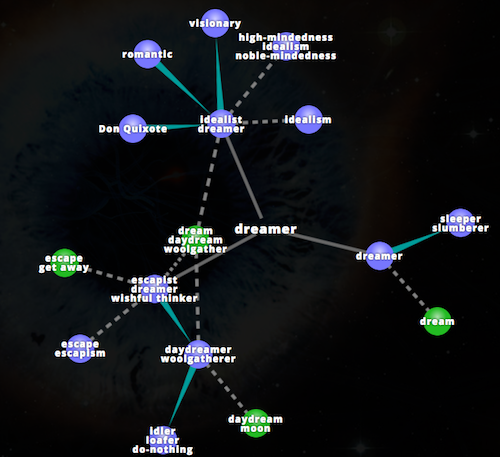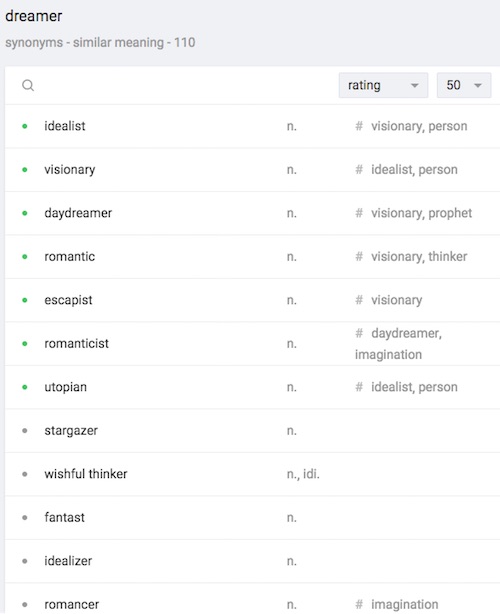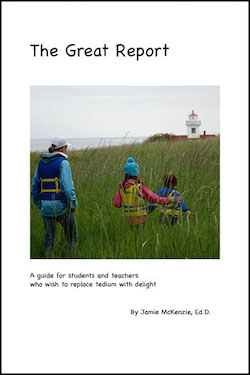| Research Cycle |
Order Jamie's books online with Paypal or a credit card
|
|
|
|
|
The marriage of vocabulary and creative thoughtby Jamie McKenzie (about author) A rich vocabulary is an essential aspect of reading comprehension and understanding in general. Without a rich vocabulary it is easy for citizens (and our students) to be bamboozled, scammed, and led astray. Fortunately, the Web offers some great tools that make the learning of vocabulary quite engaging. |
 Photo © J.McKenzie |
|
Grasping the Mysterious, the Confounding and the Essential As students struggle with complex ideas and concepts, it helps if they can entertain a cloud of words related to the main idea being explored. Whether it be beauty or courage or greed, the goal is to increase the list of related words from an initial list of 5-10 to more than 60. We hope to take the student far past the often simplistic dictionary definitions to a much richer view of the concept. To illustrate this growth process, we might lead students to move past external aspects of beauty to many aspects that relate to inner beauty. We want them to appreciate the difference between beauty and artifice, cosmetics and glamour. This process is outlined in the two articles below:
When students spend time exploring the concepts put forth by the Dove Evolution video, they begin to see that what sometimes passes as beauty may be more a matter of artifice.
To deepen their understanding of the photoshopping of reality portrayed in this video, students might turn to a thesaurus once again. When they first started thinking about To further the exploration, students might also turn to a quotation Web site like Thinkexist.com to find sayings that stretch their understanding of the concept at hand. Searching for "beauty" they find quotations like the following:
These ideas once again broaden, deepen and enrich their view of the original concept, but now that they have identified related words like "artifice" and "cosmetic," the quotations about these other words serve to further extend their understanding.
Orwell's 1984 — Newspeak and a Very Small Vocabulary The importance of words was evident to Orwell when he wrote 1984, as a central strategy of the government was the reduction of vocabulary understood and used by the citizens.
Orthodoxy and unquestioning loyalty was the order of the day in 1984 — well served by thought control and a shrinking vocabulary. Narrowing the vocabulary available to the general public can limit the range and depth of their thinking and understanding, making them far more susceptible to totalitarian control, propaganda and appeals to emotion. An example of rich vocabulary enhancing creative thought
In April of 2018, I published an article - "Important Questions" - outlining the kinds of complex questions students should learn to explore in dynamic and creative ways. |
| He wanted nothing less of Daisy than that she should go to Tom and say: “I never loved you.” After she had obliterated four years with that sentence they could decide upon the more practical measures to be taken. One of them was that, after she was free, they were to go back to Louisville and be married from her house—just as if it were five years ago. “And she doesn’t understand,” he said. “She used to be able to understand. We’d sit for hours——” He broke off and began to walk up and down a desolate path of fruit rinds and discarded favors and crushed flowers. “I wouldn’t ask too much of her,” I ventured. “You can’t repeat the past.” “Can’t repeat the past?” he cried incredulously. “Why of course you can!” He looked around him wildly, as if the past were lurking here in the shadow of his house, just out of reach of his hand. Fitzgerald, F. Scott. The Great Gatsby (pp. 109-110). Scribner. Kindle Edition. |

Photo © iStock.com
It turns out that a rich vocabulary is crucial when people explore the eight kinds of important questions.
- Questions about the future
- Questions about choices
- Questions about possibilities
- Questions about character
- Questions about consequences
- Questions about meaning
- Questions about causation
- Questions about truth
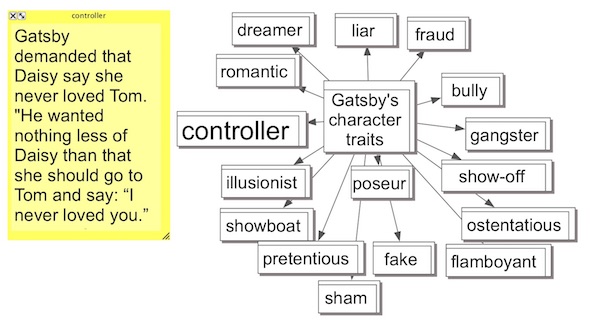
You can read sample chapters and see the list of chapters by clicking here. Order the print version by clicking below.
| ||
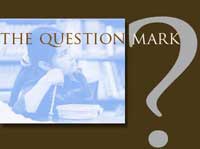
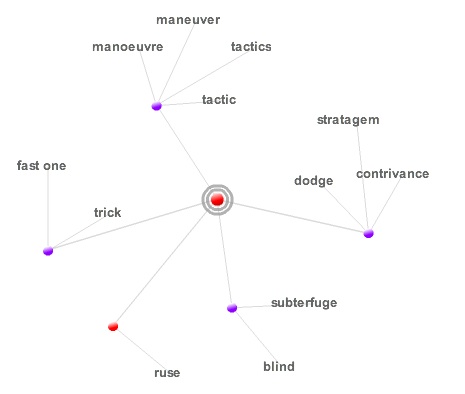 beauty, it is unlikely that trickery, contrivance and ruse would have come to mind, but the exploration of richer meanings leads them to contrast inner beauty with outer beauty and natural beauty with beauty that is staged and contrived.
beauty, it is unlikely that trickery, contrivance and ruse would have come to mind, but the exploration of richer meanings leads them to contrast inner beauty with outer beauty and natural beauty with beauty that is staged and contrived.


